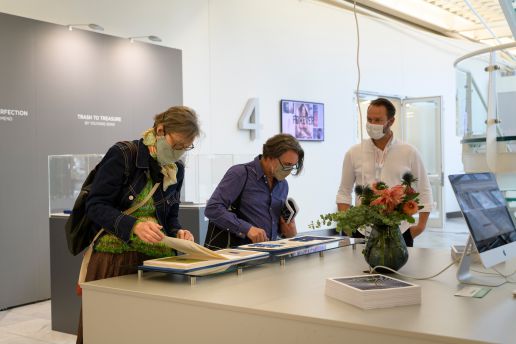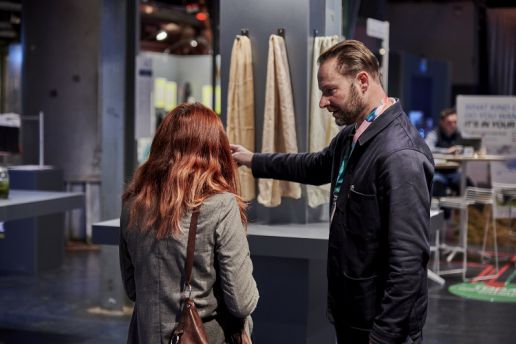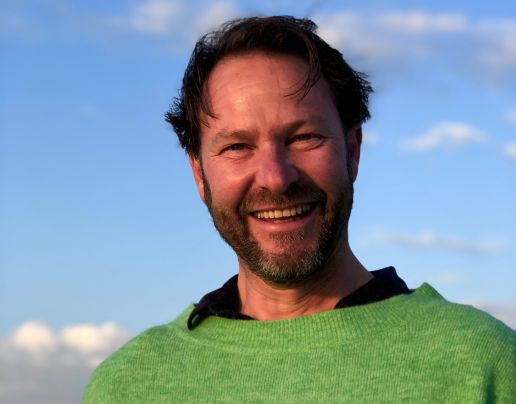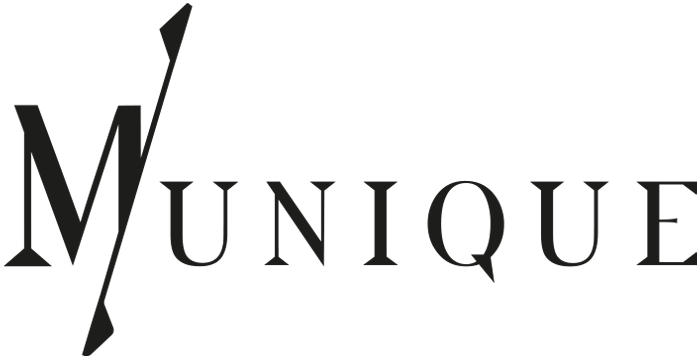It is popular to indulge in the mindset that we must put 2020 behind us and as quickly as possible. Ready to leave 2020 in the past and look only to the New Year for the future. As if there lays hope in 2021, like a magic wand it would undo and restart the world anew. But we must look back in order to look forward which is especially the case for creative innovator. In a year confronted with radical change, I can look back and break down general defining responses into three categories as:

Those who ‘endured’ change.
Those who ‘embraced’ change.
Those who ‘ignored’ change.
I think, as an allegory, this is what designers and developers ‘do’ every day. It is part of their daily practice: endure, challenge and ignore. From this perspective the majority of society is now familiar with the same practices designers have faced working in their studios’.
Looking back at 2020 among the broad network of designers and students, I am pleased to see that they have continued their practices. Perhaps you’ll be surprised to hear that a lot of them even made profit from the changes that Corona brought us. Designers from the sustainable front were celebrated. Shy geniuses were noticed and people who were previously unaware of the major flaws in the fashion and textile industry, could no longer ignore the cracks in the system: 2020 revealed the cracks and broadened awareness.
A positive response to change: the focus on sustainability and the sense of urgency to work in this way has never been clearer and has never before revealed the system ‘as a whole’ as clearly as it seems ‘NOW’. In previous articles, I pointed out that designers have a natural instinct to reflect on their contribution, to focus on their niche-solution but to observe the system as a whole. Discover the Sustainable Innovations series on the Munique Blog.
Now, however, the designers are no longer the front runners and exhausted messengers, screaming alone into the dessert. Instead, the industry: mills, dyers, production factories, governments and consumers seem to join forces and come together to solve the bigger problems in the system. This sense of urgency is a huge call for collaboration.
Meaning that our designers are free to take up a new position, leading innovation to new frontiers without the frustration of static movement from the industry. More and more, designers are re-thinkers and importantly, value collaborators. From this perspective I am very hopeful. We are still in a stage of responding to the established system, economy and behaviours … BUT I am very sure that the movement of change will continue to get stronger and broader than ever.
The challenge for now is to keep the focus on virtue, value and volume which has been the focus of our Sustainable Innovations forum since the January 2019 edition of Munich Fabric Start.
Virtue: having an idea about what you do, why you act and how this impacts society and our planet in a positive way
Value: the added value to the system, others and the whole as an effect on a certain act
Volume: think modest and act from need, not from greed

So, the actual risk in times of corona is to stress the choice between polarising OR collaborating; You are either ‘for’ or ‘against’. You are ‘in’ or ‘out’. The nuances, differences and challenges disappear from the stage. In the textile industry there is only one way: bridging the differences, uniting our similarities and cherish our authentic strengths, reminding me of the ‘Reach out and touch’ song.
The textile industry, as a front runner on fashion, can serve as the blueprint for a changing society and business practices. The ‘good’ practice. Connecting with the fact that all throughout history there exists no closer relationship to the human skin as textiles.

ABOUT THE AUTHOR
“I’m always keen to bring inspiring topics and sustainable projects into the spotlight through my work at the Sustainable Innovations forum at Munich Fabric Start and with each of my contributions to the Munique Blog. Check out @simonangelmfs for more sustainable projects, inspiration and discovery.“
Simon Angel | sa@simonangel.nl

